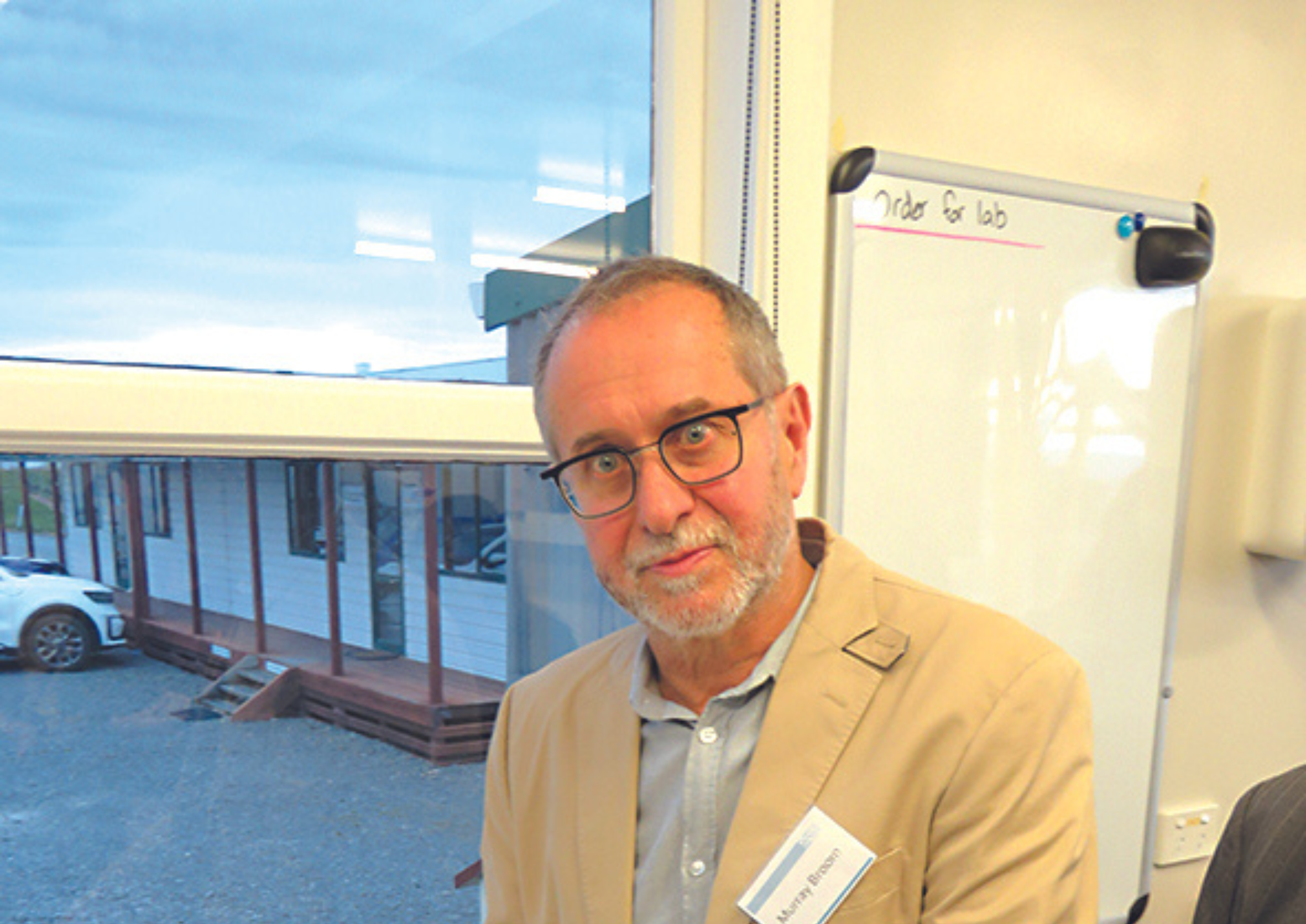A business out to achieve good

Murray Broom CEO of DNAiTECH demonstrates his field sample boiler.
ANDREW RITCHIE
DNAiTECH, Supreme winner of the 2023 Business Innovation Award was described by the judges of the Cawthron Environmental Awards as: “A strong example of a business out to achieve good”.
The biotechnology company was registered in 2020 and specialises in rapid disease detection. CEO Murray Broom said the point of difference of their DNA test procedure is that results are produced immediately and can be carried out even in remote locations.
“The test can identify the virus or bacteria and control can be instantly carried out thereby preventing spread,” says Murray.
An example given American Foulbroud, a disease affecting beehives. The only cure for the disease is immediate destruction of the hive. The technology allows for instant identification of the problem and the hive can then be burnt, before the disease can spread. Point of Care Diagnostics can provide the best outcome in a wide variety of disciplines, environmental, biomedicine and agritech to name just a few.
DNAiTECH have developed an amplifying strategy to increase the level of probability of accurate diagnosis. Murray explained that in the early days of Covid diagnosis a sample had to be taken and sent away for analysis before finding out whether the patient was positive or negative. Then along came the Rapid Antigen Test providing a result in minutes. The test was limited in its sensitivity because the level of antigens was low.
The ‘amplifying strategy’ multiplies and copies the antigen a million times making the sample easier to read. He compared it to finding 10 needles in a haystack almost impossible to find.
Multiplying the number of needles a million times will make them easier to find. To analyse a sample in the field, the company has found a way of integrating the technology onto a paper chip which is very cost-effective. The sample fluid is placed in the centre of the chip and it then streams out to the four quadrants and the results can be read without the use of a microscope or specialist laboratory equipment.
The technology has multiple applications. So far, it has been used in research into kauri dieback, diseases of beehives, identification of tropical diseases, blood analysis, water and fungal and microbial analysis in soils.
DNAiTECH has been involved in two-week programmes with NCEA level students one to three, funded by MBIE. The model has been found to engage students with science and 70 per cent of participants have indicated that they would like to be involved with science in the future.
